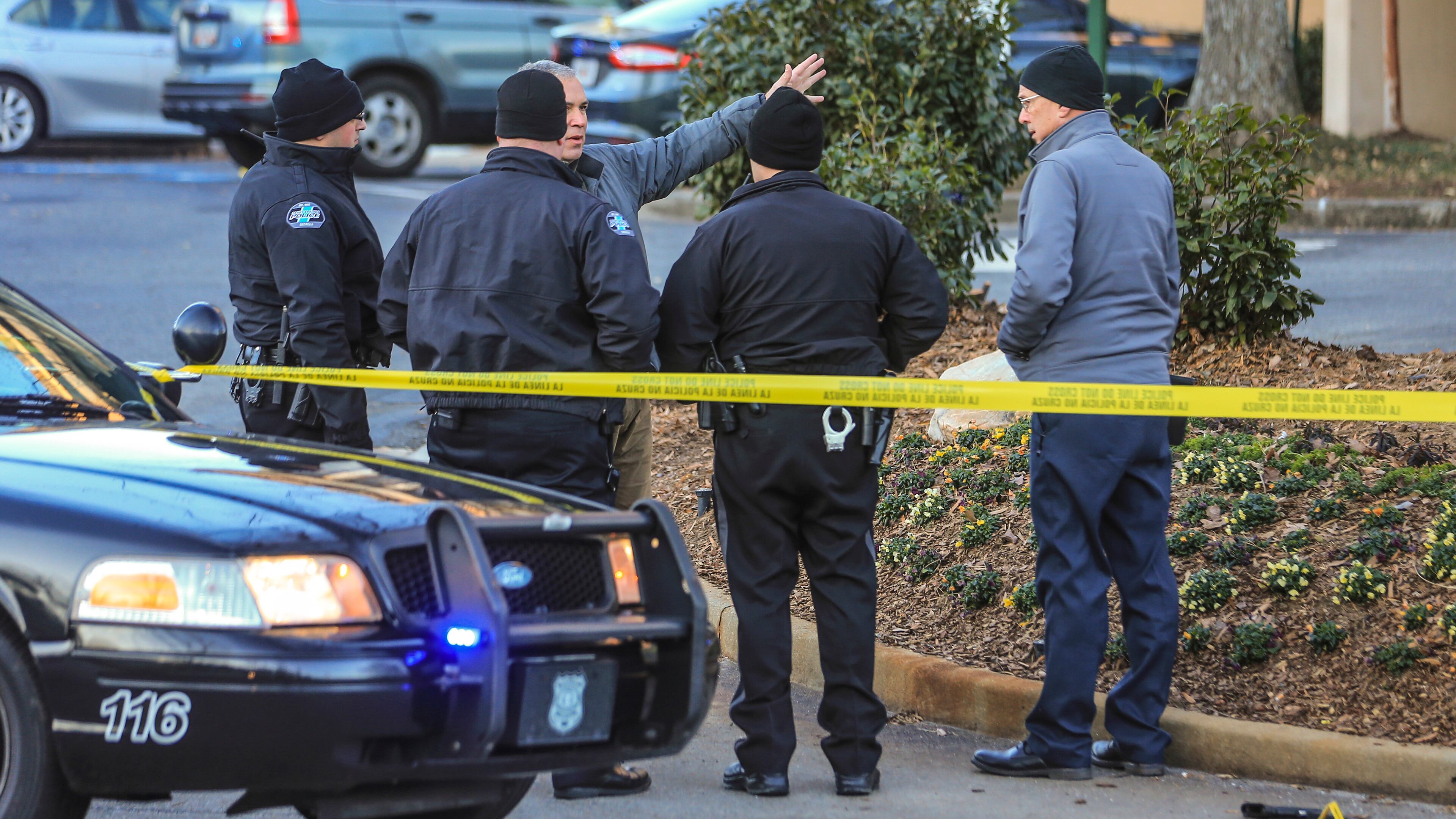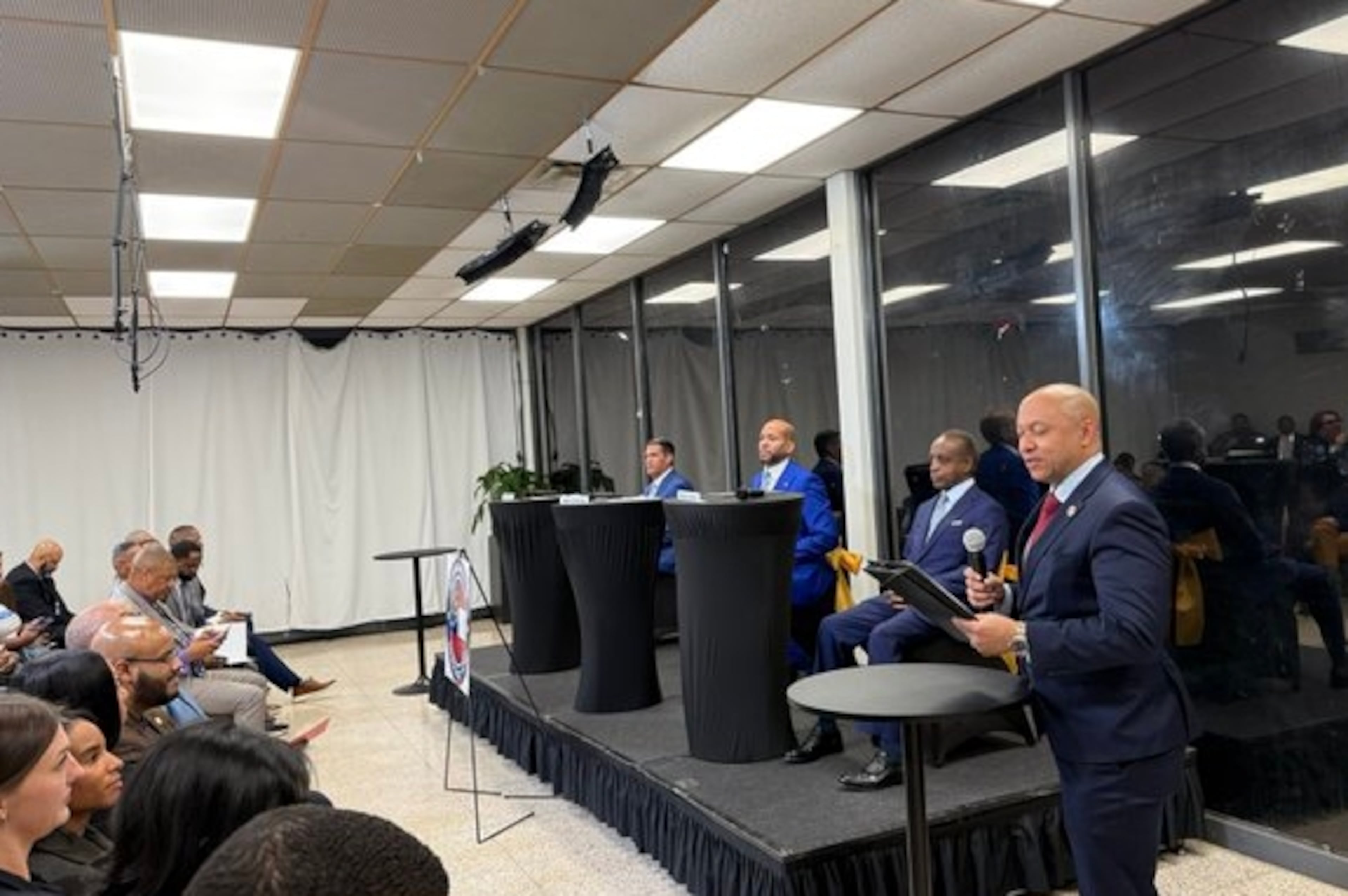CAPITOL RECAP: Who did what to fight gangs? Georgia’s AG candidates ask

Those aren’t gang signs. That’s just finger-pointing.
A lot of digits were aimed this past week over the subject of gangs and who might be at fault for the crime they commit.
The Republican Attorneys General Association came out with an ad knocking the bona fides of Democrat Charlie Bailey.
Bailey, who hopes to unseat Republican Attorney General Chris Carr, a member of the association, has tried to make an issue out of how, as a Fulton County prosecutor, he spent much more time than the incumbent has spent before judges, juries and bailiffs.
The Republican AGs’ ad questions the results.
“Atlanta’s gang problem is larger than ever and growing,” the ad asserts. “And it was Charlie Bailey’s job to put them away. He called himself the gang prosecutor. But he wasn’t. Under his watch at Fulton County, assault rose 7 percent. Murder up nearly 17 percent. And rapes up 30 percent. And Charlie Bailey watched it happen.”
The ad attributes those numbers to a Channel 2 Action News report.
Bailey responded at a press conference by trying to turn the ad into an indictment against all law enforcement.
Bibb County District Attorney David Cooke, a Democrat, helped make Bailey’s case.
“It’s an insult to law enforcement and to anyone who has ever stood before a judge and jury,” Cooke said. “… I find it shameful that someone that was appointed as chief prosecutor of this state, without ever prosecuting a case or arguing a motion in court, would attack law enforcement and prosecutors who are working to fight gangs and organized crime.”
Bailey suggested that Carr, in the two years since he moved from the Department of Economic Development into the Attorney General’s Office, has also — as the ad put it — “watched it happen.”
“My opponent has had his chance. He’s sat over there, and he hasn’t asked for one dime for law enforcement,” Bailey said. “He hasn’t asked the Legislature for one dime to build an organized crime and gang division.”
Keep on trackin': Trackers have long been a standard part of political campaigns, but they usually remain in the background.
Political parties and outside groups use them to record an opponent’s speeches – looking for a slip-up to exploit.
Campaigns are often on the lookout for trackers with the aim of impeding their work. In 2014, trackers following Gov. Nathan Deal often dealt with the governor’s staffers who tried to block their cameras.
This passive aggression became more active this past week in the governor’s race.
When a tracker for Democrat Stacey Abrams showed up at a campaign stop for Republican Brian Kemp in Cartersville, she was met by a GOP staffer holding a 4-foot wooden stick bearing a white sign with a blue arrow that would point at the tracker. It stated: “I am paid for by California socialists. Don’t talk to me.”
Later that day, at a public event for Kemp outside Sprayberry’s Barbecue in Newnan, the Democratic tracker responded with her own sign and arrow, to be pointed at the Kemp aide.
Its message?
“My boss doesn’t have a health care plan.”
Later, Kemp did unveil a detailed health care policy that focuses primarily on boosting the state's rural hospital tax credit program and seeking federal waivers under the federal Affordable Care Act. It opposes expansion of Medicaid, one of Abrams' key proposals.
The Republican had earlier faced criticism because he had devoted only seven words to health care on the issues page of his website.
Quick exit: A lot was happening at that Kemp appearance in Newnan. That would include local law enforcement escorting a journalist out of the rally.
The Newnan Times-Herald reported that Greg Palast, who works for BET, had questioned the candidate about the canceling of voter registrations under his watch as the secretary of state.
Georgia's different: An NBC/SurveyMonkey poll of Southerners shows some separation between Georgia and its neighbors in several ways:
- On a generic congressional ballot, Georgians favored Democrats over Republicans, 47 percent to 44 percent, which falls within the poll's margin of error of plus or minus 3 percentage points. Their counterparts in Alabama, Mississippi and Tennessee backed the GOP.
- 54 percent of Georgia respondents "strongly" or "somewhat" disapproved of President Donald Trump's performance. Majorities in Alabama, Mississippi and Tennessee still support the president.
- The 1,955 Georgia respondents split evenly on the governor's race, with each candidate drawing 43 percent. That's consistent with other recent polls by The Atlanta Journal-Constitution and Landmark.
- 43 percent of Georgia respondents also said they were more likely to vote for a candidate who wanted to expand Medicaid. One-quarter responded that they were less likely to vote for such a candidate. That leaves 31 percent who said the issue made little difference in who gets their vote.
- On the issue of race relations in Georgia, 41 percent said they haven't changed, 40 percent think their worse and 18 percent thought they had improved.
- 61 percent in Georgia said they strongly or somewhat oppose moving Confederate statues out of public spaces.
There are a few things you need to know about the poll. It was conducted between Sept. 9 and Sept. 24, so it’s not so much a snapshot as a video. It was completed three days before Christine Blasey Ford and Brett Kavanaugh testified at a U.S. Senate hearing involving his nomination to the U.S. Supreme Court, so it also doesn’t reflect what may be the biggest current issue on the political scene. That means these numbers could continue to wiggle until the music stops on Nov. 6.
Respondents were a mixture of “adults aged 18 and over” and registered voters — not the likely voters that many pollsters find more reliable.
A complaint of coordination: The executive director of the Georgia Republican Party has charged that a political action committee is improperly coordinating with Democratic campaigns.
Carmen Foskey filed the ethics complaint against the Georgia Responsible Leadership Fund, an outside group that seeks to help Democratic candidates. Foskey cited pamphlets the group put out advertising its ability to help candidates with a “directly coordinated” message to boost a campaign’s efforts.
State law bans political action committees from coordinating with campaigns unless they are abiding by strict contribution limits.
Jeff DiSantis, an official with the PAC, did not immediately comment on the filing.
You should see their Linked-In account: A new lobbying firm has announced it's open for business under the Gold Dome. One thing the Robbins Government Relations Group has to market is connections.
Founding members include Roy Robinson, a former aide to former U.S. Sen. Sam Nunn; Josh Belinfante and Rollin Downs, who used to work for Sonny Perdue, now the U.S. secretary of agriculture and a former Georgia governor; Kimberly Anderson, the former legislative counsel to Jeff Sessions, now the U.S. attorney general; and Ryan Teague, who used to be the executive counsel for Gov. Nathan Deal.
Two other founders may have a stronger connection to Georgia’s future: Vincent Russo, a former executive counsel to Kemp, and David Dove, Kemp’s former top aide.
Candidates, endorsements, etc.:
— Former Maryland Gov. Martin O’Malley, who for a short time in 2016 was a Democratic candidate for president, came to Georgia to offer his support to Carolyn Bourdeaux, who is challenging U.S. Rep. Rob Woodall, R-Lawrenceville; Lucy McBath, who is running against U.S. Rep. Karen Handel, R-Roswell; and Bailey.
— Abrams picked up an endorsement from Democratic U.S. Sen. Elizabeth Warren of Massachusetts, a potential presidential candidate in 2020.
— It was reported in The Marietta Daily Journal that Republican DeAnna Harris had received the endorsement of Jeriene Bonner-Grimes, the president of the Cobb County chapter of the NAACP, in her race with state Rep. Michael Smith, D-Marietta. That turned out to be big news to Bonner-Grimes, who said she never pledged her support for Harris. "I am pretty upset, quite stunned," Bonner-Grimes said. "Quite stunned."
Capitol Recap
Here's a look at some of the political and government stories that The Atlanta Journal-Constitution's staff broke online during the past week. To see more of them, go to http://www.myajc.com/georgia-politics/.



